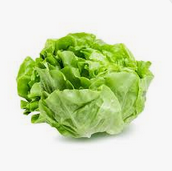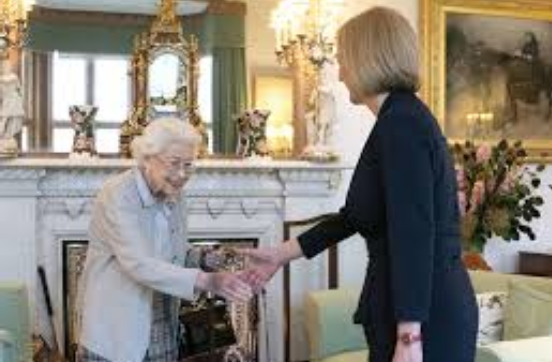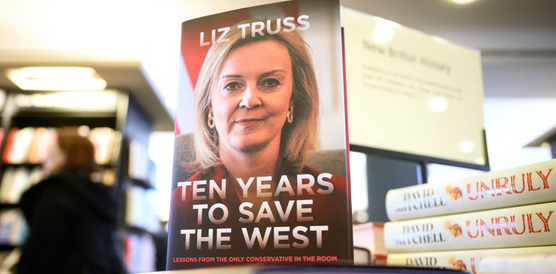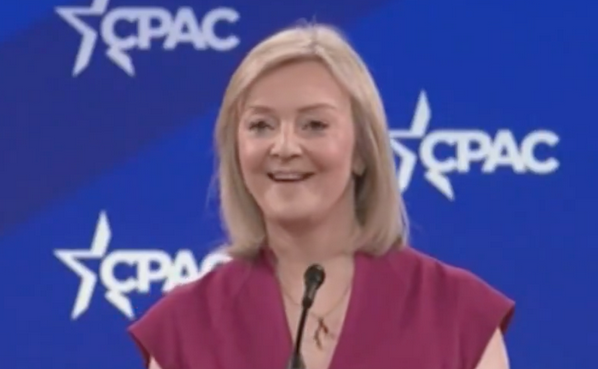We need to talk about Liz

It’s tragic, really. Liz Truss, once marketed as the wonky Thatcherite saviour of the Tory right, has devolved into a global meme with delusions of martyrdom. Her premiership, shorter than a lettuce's shelf life, should have been the final act of her political story. Instead, she’s clawed her way back into the spotlight with the frenzied energy of someone who refuses to believe the electorate has spoken.
Truss isn't returning with humility or introspection. She is on a vengeance tour, seeking validation in American hotel conference rooms and far-right podcasts because Britain won’t have her. She’s desperately looking for a flag to fight behind because the Union Jack doesn’t want her anymore. This is not ideological commitment; it’s desperation disguised as purpose. And all of this with dead eyes and a head full of teddy bears.
If we are to fully understand her political DNA, it helps to remember where she came from. This political clown literally ran away to join the circus. Her parents were on the hard left, her father a staunch socialist academic, her mother an anti-nuclear protester who once marched with CND. But instead of embracing that legacy, Truss ran from it. She fled not just her upbringing but even her early career, leaving behind a job at a respectable accountancy firm to join what amounted to a political circus. Only, this circus had a permanent address: 55 Tufton Street. That bastion of opaque lobbying and hard-right ideology, where libertarian think tanks breed policies designed to burn the safety net and feed the market gods. That’s where Truss found her spiritual home, not in service or reasoned debate, but in the parallel reality of dark money, deregulation fantasies, and performative outrage.
Liz Truss’s six-week stint as UK Prime Minister was a catastrophic display of ideological delusion colliding with economic reality. Propelled into office by a tiny, unrepresentative slice of the Tory base, she unleashed a hardline agenda of 55 Tufton Street laissez faire and Thatcherite damp-sheet fantasy: an unfunded spree of tax cuts for the rich that spooked markets, tanked the pound, and triggered a historic intervention by the Bank of England to prevent pension funds from collapsing. Her government’s so-called 'mini-budget' was anything but mini in its damage, and the fallout destroyed her credibility, leading to a rapid loss of authority and the humiliating spectacle of a Prime Minister who had to sack her Chancellor and reverse nearly all her policies just to survive a few more days. Truss resigned after just 44 days, leaving behind economic instability, a party in turmoil, and the population left to pay to clear up the mess she made.
And then, of course, there’s the lettuce. The leaves that launched a thousand memes. It must be hard, I mean truly hard, when you so desperately want to be taken seriously as a global stateswoman, but history has already cast you as a soggy punchline in a kitchen-counter livestream. The image of a lettuce outlasting a prime minister wasn’t just satire; it was poetic commentary. And that humiliation clings to her, no matter how many speeches she gives or think-tanks she flatters. It’s the indelible stain on a career that always seemed to oversell its own significance. Every time she demands to be taken seriously, the lettuce smirks in the background: a cold, crisp reminder that the public made up its mind. Why? 'Cos. That's just the tip of the iceberg [Sorry...ed]

Queen Elizabeth - ten minutes with Liz Truss and she thought "sod this for a game of soldiers" and promptly died.
Since being booted from Number 10 in record time, Truss has tried to launder her failure into a fable of sabotage. In her telling, it wasn’t her economically illiterate budget that torched the economy and sent mortgages skyrocketing. No, it was a 'deep state', an unholy cabal of the Bank of England, civil servants, the Financial Times, and, somehow, the Office for Budget Responsibility. If this sounds eerily similar to the paranoid playbook of Steve Bannon and Donald Trump, that’s because it is.
She claims, without irony, that her downfall was orchestrated by 'the left-wing economic establishment' and 'friends of the deep state' lumping in institutions like the City of London, the Treasury, and media outlets with a shadowy cabal intent on protecting the status quo. At CPAC in February 2024, she lamented, "The decisions are not being made by politicians. They are being made by technocrats, by bureaucrats, by the deep state." This wasn’t a one-off line: it’s the drumbeat of her martyr complex.
Her recent media appearances are soaked in this narrative of persecution. In one interview, she said, "I was brought down by a left-wing economic establishment who didn’t like what I was doing... I was essentially undemocratically ousted by a group of elites." It’s grievance politics repackaged in British tones, drenched in self-pity and stripped of self-awareness. Truss has entered the transatlantic culture war circuit with gusto. She's a regular feature on Bannon's 'War Room' where she nodded along as he praised convicted far-right thug Tommy Robinson as a 'hero'. Her silence was deafening, her complicity loud. When Bannon joked about being banned from the UK, she quipped that he should come over and 'sort out Britain'. It wasn’t satire. It was an open invitation to chaos.
She’s spoken at CPAC in the US alongside Orbán apologists and conspiracy theorists, railing against her enemies at home like a character in a populist pantomime. At the event, she compared herself to Margaret Thatcher and Ronald Reagan, but came off more like a political cosplay enthusiast cosplaying conviction.
The woman who once fronted Britain's diplomatic corps now sounds like a caricature of a Fox News contributor. She has even entertained the idea of working with Nigel Farage, whose own politics long since tipped into the realm of grift and manufactured outrage. It’s a coalition of the bitter and the bypassed.
She wants us to believe that she is the victim of a vast conspiracy because she dared to challenge the economic consensus. But there was no conspiracy. There was just reality. Her reckless mini-budget triggered market chaos, forced the Bank of England into emergency measures, and left working families picking up the tab. The British public, the financial markets, and her own party told her it was over.
But she didn’t listen.
Instead, she's surrounded herself with the international alt-right, seeking relevance in echo chambers that reward delusion and punish accountability. In a particularly farcical episode, she turned up at a whisky launch event alongside convicted bare-knuckle fighter Dougie Joyce, gurning into the camera with the catchphrase 'Liz Truss loves you'. I suspect the feeling isn’t mutual.

10 years to save the West... soft strong and very wrong
Then there's the book, 'Ten-Year to Save the West'. It's less a plan and more a fever dream scribbled on the back of a Thatcherite napkin. I t reads like the political equivalent of setting your house on fire to prove you don't need central heating. In Truss’s worldview, everything wrong with society, from sluggish growth to low morale, can apparently be fixed by doubling down on deregulation, tax cuts for billionaires, and blind faith in 'freedom': as long as that freedom means corporations run wild and workers keep quiet. Fresh from the historically catastrophic six-week stint as Prime Minister, Truss decided she wasn’t wrong, just ahead of her time. Her book serves up the same reheated libertarian dogma that crashed the economy in 2022, now repackaged as a grand civilisational struggle. In true culture war fashion, she pits 'the West' against the usual scapegoats: woke elites, environmentalists, and anyone who thinks markets shouldn't rule every aspect of life. The irony? Truss claims to champion democracy while cozying up to authoritarian strongmen, as long as they’re pro-growth, and preaches about saving Western civilisation while torpedoing the very social contracts that hold it together. In short, Ten Years to Save the West is a manifesto for accelerating inequality, undermining public services, and turbocharging climate collapse: all in the name of a nostalgic delusion that the 1980s never ended. As an author spilling out the dogma from her cranial void, she dials the absurdity to eleven. She proposes abolishing the Supreme Court, describes environmentalists as 'watermelons' (green outside, red inside), sneers at Barack Obama as 'anti-British', and claims that the West is under siege from within.
She positions herself as a truth-teller silenced by the establishment, a political Joan of Arc without the fire or following. “I was brought down by people who were never elected and who had no mandate to stop my policies,” she insists. It’s the ultimate inversion of responsibility, the hallmark of authoritarian populists. Truss doesn’t just have a persecution complex; she’s made it her brand. Her speeches are liturgies of grievance. Her interviews are exercises in self-pity. And her alliances with figures like Bannon aren’t accidents, they are strategic choices, ones that place her firmly in the same ideological camp as the global far-right.

What we’re witnessing is not a comeback. It’s a breakdown. A former prime minister, humiliated by her own incompetence, now auditioning for relevance in front of a global gallery of demagogues. Her allies are no longer British voters, but foreign ideologues with authoritarian tendencies. Her currency isn’t leadership, but resentment.
Increasingly, we has to ask whether we’re witnessing something more serious than political misjudgement. Her persistent delusions of persecution, grandiose comparisons to history's great leaders, and refusal to acknowledge any personal fault suggest a worrying detachment from reality. Is this just attention-seeking, or is there a deeper psychological fracture here? When a former head of government seems incapable of recognising the difference between being unpopular and being oppressed, it stops being farce and starts resembling something more tragic, and potentially she comes off as a bit, well, unwell.
It raises the question of whether Truss is inhabiting a form of political performance art, or genuinely believes in the fantastical universe she has constructed around her downfall. This kind of dissociation from fact is no longer just laughable; it’s dangerous. When delusion becomes doctrine, and that doctrine is handed a microphone on the global stage, the result is not merely embarrassment, it is contagion. Her continued relevance, aided by sympathetic media on the far-right, risks importing American-style conspiracy politics into the already brittle fabric of British democracy.
Moreover, Truss's alignment with anti-democratic movements abroad illustrates a disturbing trend. Her rhetoric echoes those of Brazil’s Jair Bolsonaro, Hungary’s Viktor Orbán, and even elements of Putinism in its suspicion of elites and veneration of a supposedly betrayed national past. Her affinity with these ideologues is not superficial. It’s grounded in a mutual disdain for institutional restraint and an obsession with rewriting failure as betrayal.

Liz truss: What happens when the ventriloquist dies and the dummy keeps on talking
There is a peculiar loneliness at the heart of her crusade. You can almost hear the echoes of the applause she believes she still deserves, chasing relevance with each outlandish soundbite and each media hit. But behind the bluster lies a deep fragility, the kind that fuels cults of personality. She doesn’t want a movement; she wants redemption. And if the cost of that redemption is Britain's political stability, so be it.
Even her own party wants her to go away. Labour rightly calls her out, but senior Tories stay quiet, terrified that calling her out will fracture their already splintering base. In the vacuum of leadership and accountability, Truss thrives like a fungus in the damp. She’s not the future of conservatism. She’s the cautionary tale.
Indeed, her re-emergence highlights a broader crisis of leadership on the British right. Liz Truss might be the most theatrical expression of it, but she’s not alone. Boris Johnson, with his own mythology of betrayal and bluster, has also attempted a resurrection tour built on grievance. Suella Braverman is cut from the same cloth: incendiary soundbites, a culture war fixation, and a disdain for nuance. But unlike Johnson, who at least could command a room, or Braverman, who still has a faction, Truss has neither the charisma nor the coalition. What she offers instead is pure projection: an echo of the worst instincts of her party’s base, turned up to eleven and devoid of any strategic thinking.
What Liz Truss is, is a warning: she’s a warning of what happens when populist theatre outlives its applause. So yes, we do need to talk about Liz: not because she has anything serious to offer. But because, in her mix of failure, denial, and far-right grift, she shows us just how dangerous British politics can become when fantasy replaces facts and narcissism is over-platformed by our media to a level far more than it deserves, because the algorithms sell.
The world has gone mad. If you enjoyed reading this, please feel free to look at the rest of the blogs on www.TetleysTLDR.com. They're free to view, there's no paywall, they aren't monetised and I won't ask you to buy me a coffee. Also please free to share anything you find of interest, we only get the message out if people are aware of it. Just a leftie, standing in front of another leftie, asking to be read. All the best, Tetley

!0
